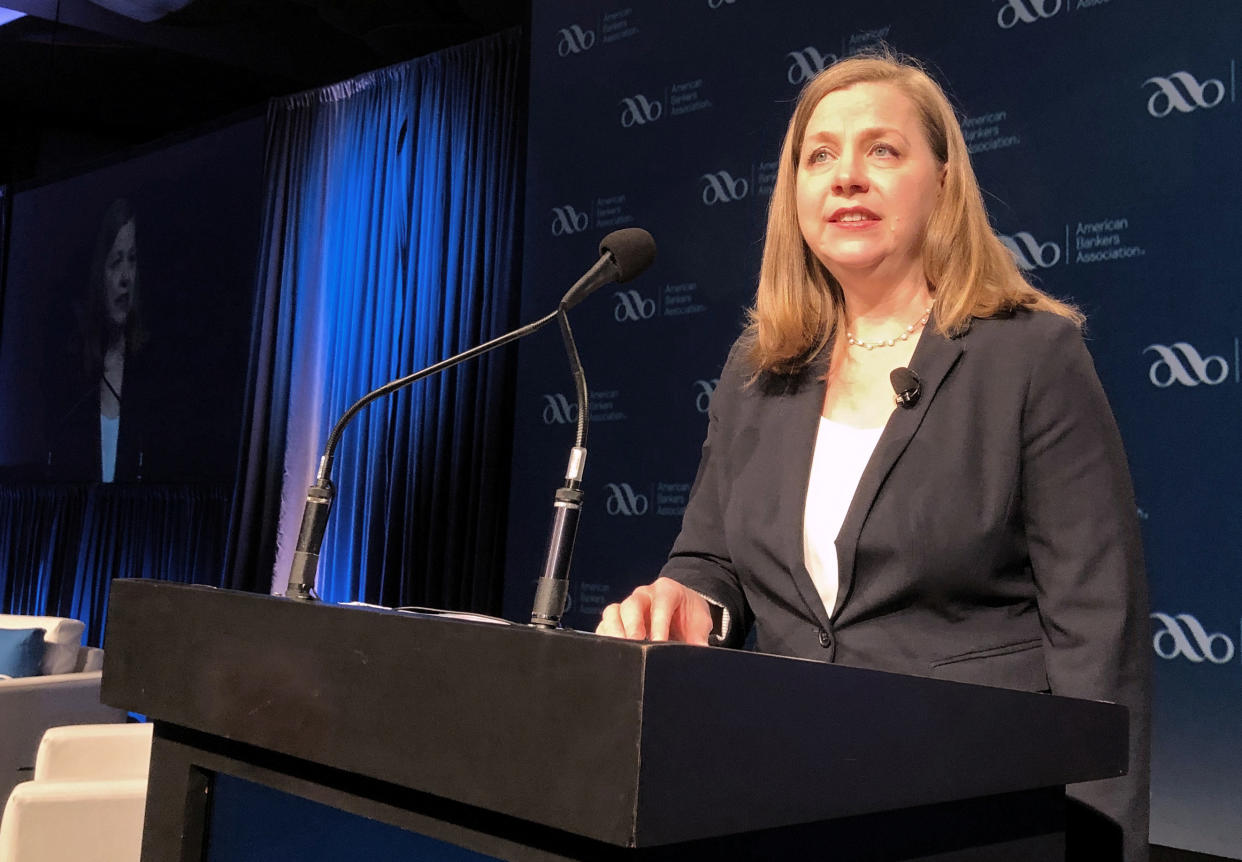Federal Reserve Governor Michelle Bowman said Tuesday while there are encouraging signs inflation is declining, there's still more work to do and that the Fed will continue raising interest rates to bring inflation down to its 2% goal.
“I am committed to taking further actions to bring inflation back down to our goal,” Bowman said at the Florida Bankers Association Leadership Luncheon in Miami, Florida.
“In recent months, we’ve seen a decline in some measures of inflation but we have a lot more work to do, so I expect the FOMC will continue raising interest rates to tighten monetary policy.”
Bowman said the size of future rate increases, and how high the Fed ultimately raises its policy rate, will hinge on incoming data and its implications for the outlook for inflation and the economy.
“I will be looking for compelling signs that inflation has peaked and for more consistent indications that inflation is on a downward path, in determining both the appropriate size of future rate increases and the level at which the federal funds rate is sufficiently restrictive,” Bowman said.
The Fed raised rates by half a percentage point in December, slowing down from its torrid pace 0.75% increases in each of its four policy meetings. The Fed's next policy meeting will take place at the end of this month, with the central bank's next policy announcement due on Feb. 1. Investors are pricing in a 75% chance the Fed will raise interest rates by another 0.25% following this decision, according to data from the CME.
Bowman said she expects once the policy rate is “sufficiently restrictive,” or restraining economic growth and demand, rates will need to remain at that level for “some time” to ensure inflation stays down.
The Fed governor argued that maintaining stable inflation is essential to support a strong job market. And given that the job market has remained resilient in the face of the Fed’s tightening campaign, Bowman is hopeful the Fed can lower inflation without causing a recession.
“I take this as a hopeful sign that we can succeed in lowering inflation without a significant economic downturn,” Bowman said. “[Though] it is likely that as a part of this process, labor markets will soften somewhat before we bring inflation back.”
Bowman cautioned that if there are unforeseen shocks to the economy, economic growth could slow further. She underscored that inflation is partly a global issue, pointing to disruptions in supply chains and the war in Ukraine, neither of which monetary policy can do much to improve.
Separately, on cryptocurrencies, Bowman said the Fed will continue to monitor banks’ exposure to crypto given its risks. She acknowledged that while the traditional financial system has limited exposure to cryptocurrencies, she expects some banks will continue to explore how to integrate crypto into their operations and that the Fed does “not want to hinder innovation.”
Bowman also said the Fed continues to study a central bank digital currency, but noted that its FedNow program may accomplish the goal of a CBDC. “Although much of what supporters hope to achieve with a central bank digital currency may be provided through FedNow and existing private payment services,” Bowman said.
Click here for the latest economic news and economic indicators to help you in your investing decisions
Read the latest financial and business news from Yahoo Finance
Download the Yahoo Finance app for Apple or Android
Follow Yahoo Finance on Twitter, Facebook, Instagram, Flipboard, LinkedIn, and YouTube
Source: Read Full Article
